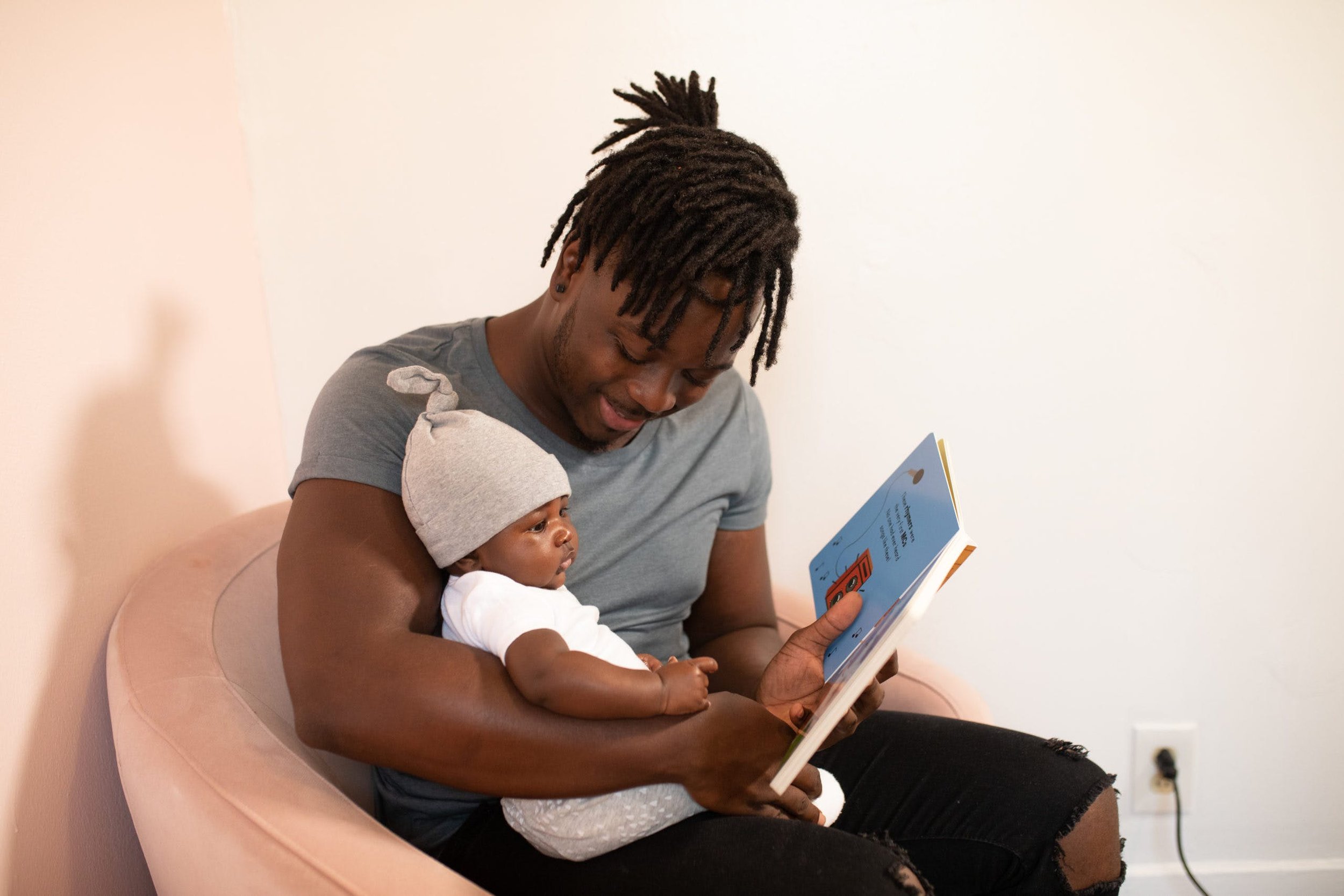Early Literacy Must Not Wait for Preschool Enrollment
By Mark W.F. Condon, Unite for Literacy vice president
Now hear this! Preschool education does not equate to literacy.
Too many news stories, articles, and ivory-tower speeches perpetuate this misunderstanding. Preschool of course includes early literacy “lessons,” but take a small step back from that and it becomes immediately clear that it is not early enough. The world has produced abundant research and an adequate track record to fully embrace the reality that if we wish to invest in early literacy, it is parents and families in the home that most need our attention and support.
Early literacy and preschool may get conflated because most leaders in early literacy are teachers, focusing on classes, standards, and grades, none of which are necessary for establishing the foundations of literacy acquisition, and for building a love of books and reading.
That bias is a bubble reality that needs to be popped for the sake of offering children early literacy help where help is needed. Thought leaders in literacy and in the broader community must step up and lead the conversations around early literacy away from early education and toward early learning in the home—birth to before formal school begins.
There are a few voices clambering for a broader and more enlightened perspective about early learning policy. Policy makers and educators as a class, however, have yet to embrace the truth consistently and appropriately: It is the family that is the most fertile ground for introducing what books and literacy are about, not school.
We must shout it from the rooftops that early literacy doesn’t begin with first-day cubby assignments, but rather when our “tinies” are still comfy in their “onesies.” It starts with talking to infants and chatting with toddlers. It continues through cuddly lap reading and playfully leading little ones into an understanding that their little books MEAN something, to them—personally. It continues through bedtime stories with affectionate discussion, and the brief hug-and-kiss celebrations over adding a new book to toddler’s growing bookshelf. And leaving them simple little love notes under their pillows and in their toyboxes personalizes literacy in a whole new way for them!
At the end of the day, some young parents, struggling to make ends meet, may not have much time or money for recreation and personal expression. But what they do have, that none of the rest of us have, is their kids. Parents who have reared older children who love books and reading can provide lots of stories about when their kids fell in love with books. They can share at what age their little ones began to request rereading of favorites, and their delight when their kids started to “read” books on their own. Though children’s early efforts did not precisely match the author’s words, the little ones managed to create original renditions that sounded just like reading! Stories like these can help lucky young parents “get” what they may not yet understand—that now, right now, they play an irreplaceable role in ensuring the school and life success of their babies.
Worried about where new funding will end up, educational institutions, curriculum developers and publishers have all taken positions designed to draw finances in their direction. That is a political strategy, not an educational one. For the sake of children, we need to step out of that institutional box and step into the warm sun and fresh air of the day-to-day learning lives of our littlest (and constantly engaged) learners. Our resources could be invested better in efforts toward guiding and supporting new parents. Many need help knowing how best to help their little ones. Some parents are just discovering for themselves the joy and fulfillment of delightfully, verbally interacting about life and the world with their rapidly growing, though not yet walking, bundles of joy. In the long run, that is more rewarding than anything else they might currently imagine and many need help to envision their critical role in that earliest learning.
That small change in self-perception will pay lofty dividends for families, their children and for our society at large.
